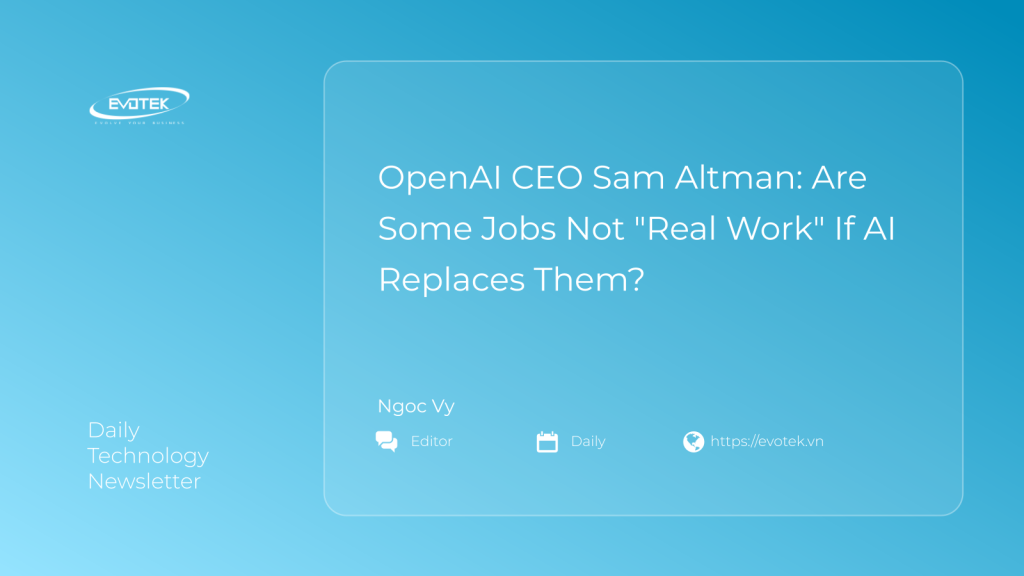Sam Altman, the chief executive of OpenAI, recently ignited a fresh wave of discussion regarding the impact of artificial intelligence on the job market. His latest comments suggest a provocative viewpoint: if certain professions are eventually eliminated by AI, perhaps they were never truly “real work” to begin with.
During an interview at OpenAI’s DevDay conference, Altman delved into the complex future of employment. The conversation stemmed from a thought experiment presented by interviewer Rowan Cheung, who reflected on how a farmer from fifty years ago might perceive our current, internet-driven economy. Cheung posited that while the internet created countless new jobs, an older farmer might struggle to comprehend their legitimacy as “work.”
Cheung extended this analogy to the “intelligence era,” cautioning that a significant number of knowledge worker jobs could face threats before new AI-driven roles emerge. His point highlighted the uncertainty surrounding what future jobs AI might create, drawing parallels to the farmer’s inability to foresee the internet’s profound economic impact.
Altman revisited the “farmer” analogy when pressed on the potential destruction of a billion jobs. He speculated that a farmer from the past wouldn’t just disbelieve the creation of modern jobs; they would very likely view many contemporary professions as “not real work.”
According to Altman, the farmer’s perspective might be rooted in the tangible nature of their own labor. “If you’re, like, farming, you’re doing something people really need,” Altman explained. “You’re making them food, you’re keeping them alive. This is real work.” In contrast, the farmer might perceive many of our modern roles as merely “playing a game to fill your time.” This distinction, Altman suggested, leaves him “a little less worried” about AI’s impact on employment, though “more worried in some other ways.”
He continued, “It’s very possible that if we could see those jobs of the future, maybe our jobs were not as real as a farmer’s job, but it’s a lot more real than this game you’re playing to entertain yourself.” This complex argument implies a hierarchy of work, where some jobs are inherently more fundamental than others, and future jobs might seem even less “real” by today’s standards.
Altman’s underlying assertion appears to be that the definition of “work” is fluid and constantly evolving. He seems to suggest that concerns over AI-driven job displacement might be mitigated if we consider that many existing roles, from a foundational perspective, may not be as essential as we perceive them to be. Ultimately, Altman expressed strong optimism about human adaptability. “I’m so willing to bet on human drives being what they are,” he concluded. “And I think we’ll find plenty of things to do.”

 日本語
日本語 한국어
한국어 Tiếng Việt
Tiếng Việt 简体中文
简体中文